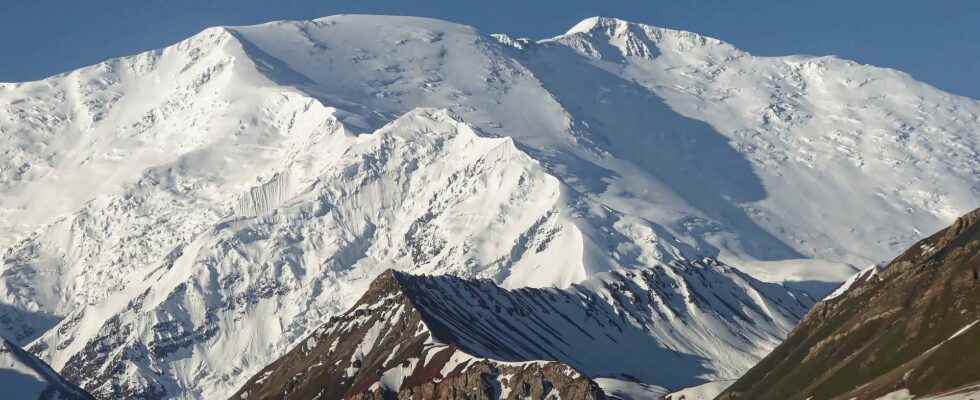After the collapse of the Italian Marmolada glacier on July 3, another glacier suffered the same fate last weekend. British tourists were able to film very closely an impressive flow of ice from a glacier in Kyrgyzstan.
You will also be interested
[EN VIDÉO] COP21: Mont-Blanc glaciers threatened by global warming Satellites have enabled glaciologists to observe a record thinning of 12 meters per year in the glaciers of the Mont-Blanc massif in their lowest part. The Cnes offers us a video update on this worrying situation.
While hiking in the Juuku Gorge, a dozen British tourists witnessed an event as dangerous as it was spectacular: thecollapse of a glacier located in front of them, followed by an ice flow breaking at several hundred km/h. Believing himself safe from a safe distance, one of the tourists filmed the scene, unaware of the danger coming straight at them. The team of hikers was indeed located below the glacier, in the avalanche corridor and only realized too late that the flow of ice could reach them in the space of a few seconds: located at the end of the race of the’avalanche, the hikers were violently thrown to the ground. The event did not cause any fatalities, but the Britons present were still injured and some had to be taken to hospital for cuts and bruises.
Kyrgyzstan: A glacier broke off near the Juuku Gorge.
Tourists started filming what was happening before they were hit by the avalanche.
According to the media, 2 people were hospitalized with injuries & bruises. pic.twitter.com/NKUxhfpCmZ
— Rebecca Rambar (@RebeccaRambar) July 10, 2022
Frequent but not as large collapses
Located in Central Asia next to China, the Kyrgyzstan is a predominantly mountainous country, with a Continental climate and locally polar on some vertices. The country’s climate is extreme, with winters weather report freezing, and scorching summers. The highest peak in Kyrgyzstan culminates at 7,439 meters above sea level. The place where British tourists used to hike, Juuku Gorge, is well known for its spectacular glacier views, including the It-Tash peak (4,808 meters). In this part of the country that is nicknamed “the Switzerland of Asia”, the ice collapses are frequent, but rarely on a scale as large as that filmed by tourists. No weather data was transmitted on the conditions that prevailed there before the collapse of the glacierbut in the country’s capital, Bishkek, it was 35-37°C last weekend, 2-4°C above averages for season.
Interested in what you just read?
